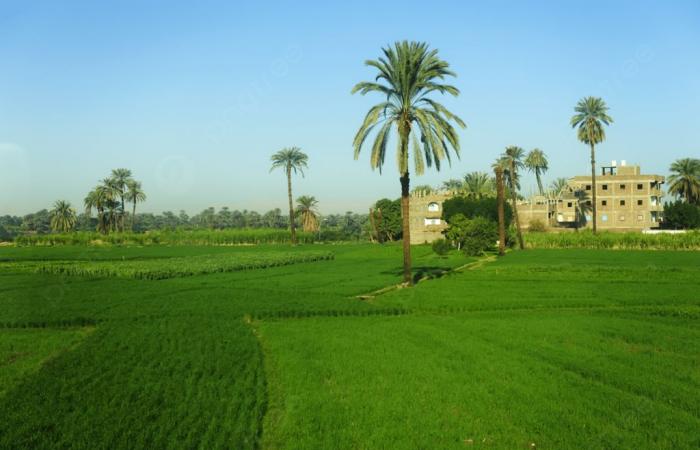The General Authority of Meteorology warned the tour of sudden changes in weather conditions starting today and continuing during the coming days. The Authority confirmed the possibility of heavy rain falling in a number of governorates, with the possibility of intense wind activity.
For its part, the Ministry of Agriculture and Land Reclamation confirmed that these conditions greatly affect agricultural crops, as well as livestock and poultry production farms. Therefore, I announced a number of tips and guidelines that should be followed to prevent any losses to crops, livestock or poultry.
Necessary measures to confront bad weather
Dr. directed. Tariq Suleiman, Head of the Livestock and Poultry Development Sector at the Ministry of Agriculture, formed a central follow-up committee in the sector, to communicate with the general departments of animal production in the agricultural directorates and agricultural departments in all governorates of the Republic, as well as the General Authority for Veterinary Services, and its various branches in the governorates to take all necessary precautionary measures and measures to confront emergency weather conditions.
Read also: For 15 pounds… Agriculture reveals when potato prices will drop in the markets
The sector issued a number of advice and recommendations to livestock breeders and producers, including the need to cleanse floodwaters and waterways, as well as cleanse water drainage drains and sewage networks, and prepare means, equipment, and water suction machines. Owners of livestock and poultry farms near areas expected to be flooded by rain must also be cleaned. Transferring them to other distant places to avoid material losses, creating barriers around the farms to prevent any water from entering or leaking, working to raise the level of the farm floors, as well as doing maintenance. For farm roofs.
Store feed in safe areas
The Ministry also stressed the necessity of preparing a sufficient stock of fodder needed to feed livestock as a precautionary measure in the event of heavy rain, taking into account storing it in dry, clean places far from any water leakage. As for cars carrying feed mixtures, concentrates, additives, or crudes, they must move during non-rainy times. The shipments inside must be covered with a cover that prevents water leakage.
It is also necessary to ensure the integrity of the ventilation outlets and openings for stores of feed and its raw materials, whether they are in farms, factories, or shops trading in feed, so as not to allow rainwater or dew to penetrate into the store.
Protecting crops from rain
For his part, Dr. Muhammad Fahim, head of the Climate Change Information Center at the Ministry of Agriculture, confirmed that the expected rains as a result of bad weather will lead to an increase in relative humidity in the north of the country and the delta regions, which requires a number of urgent measures that farmers in these regions must take.
Read also: Lands from the Ministry of Agriculture…a new step to establish outlets to sell goods at reduced prices
He added that for ground crops (potatoes and beets), about 2-3 liters of phosphoric acid must be injected after the end of the rain, followed by calcium spraying, preferably with carboxylic acids, and the source of calcium should be calcium oxide and not calcium nitrate, in addition to an injection of potassium sulphate of 10 kilograms per acre. Injection.
As for summer vegetable crops such as tomatoes and peppers, attention must be paid to conducting urgent preventive sprays against some fungal diseases that love high humidity, such as downy mildew, early blight on tomatoes, tomato and pepper fruit rots, and crown zone rots in cabbage and cauliflower, as well as spraying against aphids and thrips.
Copy link
The link has been copied






